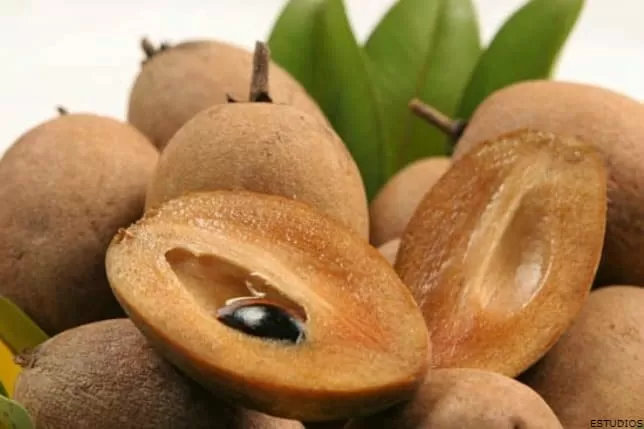The medlar tree is a highly rounded fruit, usually orange in color, and is appreciated in most cases for its flesh or skin, which is often aromatic, its pulp turns out to be sweet, although on other occasions, it throws much more beside the acidic fruits; it is a food that can be eaten raw, for jellies or jams, for juices, among others, which makes this fruit somewhat versatile and useful for different dishes.
Currently, there are two large loquat crops, which are the European and Japanese, although, at present is mostly known the second, being of pearly form, with colors in yellow and orange, being of final skin and extremely hard, for its part, the pulp tends to be white with an acidic touch, also contains different brown seeds of large size. The medlar tree is considered a high digestive food, so it is usually ideal for the stomach and intestinal transit, therefore, thanks to the fibers and the amount of water it has, it is taken into account as a diuretic or depurative food extremely natural, helping to reduce high cholesterol levels and is indicated for patients suffering from hypertension.
It is a fruit characterized by providing few calories to the human body, so it is indispensable as a food within the usual balanced system to lose weight, likewise, it is a fruit that provides large amounts of potassium, calcium, magnesium, phosphorus and iron. The medlar tree belongs to the classification of fruits that provide the organism with vitamins A and E. It is also included in the diuretic or depurative fruits, fruits with magnesium, orange fruits, citric fruits or acid fruits, among others.
Origin of the Loquat
The medlar tree is a fruit nicknamed “Loquat of Japan”, which was originated in Eastern China, from there, it was extended to other countries as it is the case of Japan, where this fruit is usually the most typical of the region. From Japan, it began to be exported to Europe, in the 18th century, mostly as a species of an extremely fruity tree.
With the passing of the years, the medlar tree began to be consumed frequently by people mostly in the Mediterranean areas, where it began to adhere much better in terms of cultivation areas, mostly representing citrus fruits by that time.
It is at the end of the 50’s and beginning of the 60’s, when the medlar tree takes power and begins to develop in the extremely intensive cultivation of its tree, since thanks to it, they began to implement different varieties and mechanisms of cultivation that nowadays are still implemented frequently in the lands of different exporting countries of this wonderful fruit.
Currently, the main producer of loquat is Asia, contributing a total of 83% of loquat for the entire world, followed by South America and finally the rest of the world, since its production is usually scarce in different continents.
Properties of the Loquat
Within the main nutritional properties of this wonderful fruit as it is the medlar tree you get the following:
- Among the most abundant substances of the medlar tree stand out its sugars, mainly fructose and glucose; the medlar tree provides a reduced caloric value to the human body, so it is recommended for all those people who want to lose weight.
- In general, the vitamin content of the medlar tree is extremely low, so it does not stand out from other fruits, however, it provides the body with provitamin A or the famous beta-carotene, and it also supplies appreciable amounts of minerals, such as magnesium, calcium, potassium (its most important mineral) and iron.
- The medlar tree is a fruit that will always stand out for its high content of fiber, mainly pectin, as well as tannins, which turn out to be extremely favorable substances in astringent actions; it also contributes with aromatic substances, being these organic acids, among which the citric, the tartaric and the malic ones stand out, more than all of them abundant in its pulp.
- For its part, these acids are capable of being disinfectant, as well as are responsible for alkalizing the liquids in the urine. Similarly, the vitamin A that provides the human body is essential for vision, hair, mucous membranes and the proper functioning of the immune system in general.
Among the main properties for the health of this incredible fruit as it is the medlar tree you get the following:
- The medlar tree stands out mainly for its pectin content, which is a totally soluble fiber that exerts highly organic functions, making this fruit an interesting food against different diseases. The soluble fiber retains water, makes the stomach swell and helps to directly reduce the speed of gastric emptying, so in a certain way it produces feelings of constant satiety.
- The medlar tree has beneficial effects in case of diarrhea, since it helps the intestinal transit to be much slower, so it retains water constantly. Loquat also has substances called tannins, which act as astringent or anti-inflammatory properties.
- The medlar tree, because it contains pectin, increases the pH, making the acidity decrease, so this fruit is recommended for gastrointestinal disorders, since it binds directly to the fiber and protects the stomach from gastritis or gastroduodenal ulcers, among other disorders.
- Loquat fiber helps reduce all cholesterol rates found in the blood, so it maintains good glycemic control in balance; it is an ideal fruit for all those who suffer from diabetes or hypercholesterolemia.
Benefits of Loquat
Among the main benefits of the medlar tree you get the following:
- The medlar tree is a low caloric fruit, it provides the organism with a notorious amount of soluble fiber, it also provides a substance called pectin that is in charge of maintaining the humidity located in the colon, acting as a very natural laxative. In the same way, the fiber helps in the intestinal health, facilitating the transit of this one and regulating the absorption of all the nutrients.
- The medlar tree possesses notorious amounts of vitamins A, which makes it an antioxidant fruit, which helps strengthen the mucous membranes and all traces of skin with premature aging.
- Likewise, vitamin A contributes to the normal metabolism of iron and to the proper functioning of the immune system.
- Loquat is a fruit rich in minerals such as copper, magnesium, calcium, iron, potassium, among others. Some of these minerals participate directly as antioxidant enzyme synthesis, and others, such as iron, are implemented to produce the famous red blood cells in the body.
- The medlar tree is ideal for all those people who suffer from diabetes, since it helps to reduce the glucose levels that are located in the blood; on the other hand, this fruit is recommended for people with overweight, since its caloric contribution is low, and it is high in water and fiber content, reason why it is of great ally to introduce in the diets for healthy slimming.
- The medlar tree, on the other hand, is a food that is frequently recommended by specialists in case people suffer from kidney disease, since it has different detoxifying powers on the body, helping to eliminate all the localized toxins, so it is excellent to fight gout, kidney stones and uric acid.
- The medlar tree contains diuretic or depurative effects, exerting anti-inflammatory actions, so it directly regulates and balances all intestinal activity, making this fruit suitable for extremely delicate stomachs.
- Finally, loquat is rich in carotenes, which helps prevent skin aging, properly moisturizing the entire body, and giving vitality and strength to the body.
Types of Loquat
At present, there are two types of loquat, Japanese loquats, which are much earlier, with light-colored fruit and few seeds, and Chinese loquats, which are the smallest in size but have a slightly more flavorful taste.
Worldwide, loquats are cultivated like the Tanaka and the Algerie, both considered Japanese loquats, however, the first one is a variety a little late in maturation, but at the end, it presents fruits of high caliber, with extraordinary flavors, whereas the second one, is a variety of smaller size, with a flavor little gustatory, and its skin is not usually of great pleasure.
It also gets the medlar Golden Nuget, which is a fruit of round or circular shape, presenting a very dark orange skin tone, while its flesh is brown, being very juicy and usually forms a layer of viscosity a little cumbersome for people who consume it. It is a type of loquat that is often found in Spain and Germany.
In the same way, there is the loquat called Peluche, which is a species that has an elongated shape, with a widely rough skin, being yellowish to orange, although in many cases it turns out to be pale; its pulp is almost always fleshy, extremely juicy and with a little sour taste.
The Venezuelan and Colombian Loquat (Nispero)
Finally, the Venezuelan medlar tree is also obtained, also the Colombian one, which is characterized by being a highly perfumed fruit, since it usually has unique aromas. It is a type of loquat with an extremely sweet flavor, so in most cases it is pleasant for people; it is a crop brought mainly from Europe specifically to Venezuela. It has high contents of vitamin C, B and B6, ideal for the human organism.
Loquat Tree
The loquat tree is known scientifically as the Japanese Eriovotrya, it is a fruit tree belonging to the family of the rosaceae, which comes from the South of China, for what it turns out to be an important plant for the Japanese inhabitants, who dedicated themselves to expand this tree in its beginnings.
The medlar tree is a large tree, which can easily reach at least 10 meters in height. Its leaves are also usually large, so in most cases they are long and wavy, these same leaves come from the branches under the tree, which form a highly rounded layer so that people can distinguish this particular tree.
The leaf of the medlar tree is usually perennial, characterized with flowers mostly grouped in panicles, which arrive in seasons like autumn or winter, and it is a tree that is in its maximum splendor the months of December until February, but its fruits do not mature but, until April in most of the occasions.
Does The Loquat Get You Fat ?
In spite of the fact that the medlar tree has high quantities of sugar, it is not a fruit that makes people fat, on the contrary, it is a food that is frequently recommended, especially for people who suffer from overweight or any stomach disorder to help them lose weight in a healthy and effective way.
The medlar tree is a fruit that provides a total of almost 9% in calories, so it is not a representative amount for people to tend to get fat, and thanks to its properties both in fiber, as the main element, which is water, is an ideal fruit to include within the slimming diets on a regular and constant basis.
Does Loquat Have Fiber ?
The medlar tree is usually a fruit rich in fiber, with high percentages of diuretic or depurative power, which helps to eliminate all the toxins located in the organism, also providing different vitamins and minerals which are indispensable and vital for the day to day of the people.
The medlar tree is a fruit that presents good quantities of soluble fiber, allowing to eliminate with greater speed the amount of toxins and reducing as well, all the levels of cholesterol in the blood. It is an ideal substance to fight against stomach constipation.
Does Loquat Have Sugar ?
The medlar tree does have sugar levels, being a total of almost 9%, so it is a fruit that does not represent high quantities for the body, which turns out to be beneficial for the health, especially for those people who suffer from obesity, overweight or diabetes, however, the excess consumption is not convenient, that is why you should take care of the portions you consume per day of the medlar tree.
Does The Loquat Get You Fat if you Eat it at night?
The medlar tree, given its high contents in potassium and organic acids is usually ideal in diuretic diets, and although people think the opposite, there are studies that affirm that no fruit, including the medlar tree, gets fatter at night than during the day, since its properties do not vary at any time of the day, so it can be consumed, taking care of its consumption at any time.
Is Loquat Diuretic ?
Medlars are recommended for patients and all those people who present problems with fluid retention, since thanks to its high content of potassium and organic acid, it contributes to being an excellent diuretic or natural depurative for the body, increasing the production of urine and facilitating all elimination of grit and uric acid sediment that is concentrated in the kidneys.
It is a fruit recommended for all those people who suffer from gout, hypertension or different excesses of uric acid. Loquat is a fruit that purifies and improves the function of the liver.
Is Loquat Good For Digestion ?
The main component of loquat is water, followed by sugars, both glucose and fructose, in addition to having high percentages of fiber, is usually a good digestive for the stomach, often recommended for all those who suffer from hypertension and need to reduce high cholesterol levels.
Does Loquat Lose Weight ?
Loquat is considered a perfect fruit for losing weight, since it contains a total of 40 calories for every 100 grams of food, which does not represent high levels of weight gain. Thanks to its low sugar content and its low energy value, medlars are an ideal fruit to include in any weight loss diet.
Loquat Calories
For every 100 grams of ration consumed daily, the medlar tree provides a maximum total of 45 calories to the body, and among its most notable properties are its value in fiber, its amount in potassium and magnesium, making it an ideal fruit for all those who wish to lose weight and stay healthy.
History of Loquat
This fruit originated mainly in Eastern China, from there it was expanded by commercial routes to Japan, specifically in the 18th century, where by then they also took care of bringing it to Europe, mostly as an ornamental tree.
In the 19th century, the medlar tree began to be widely consumed, mainly in Mediterranean areas, where it adapted perfectly to the cultivation of citrus fruits, predominating over others.
Topics Related to Fruits in ALPHAPEDIA

WINTER FRUITS: Benefits and Properties
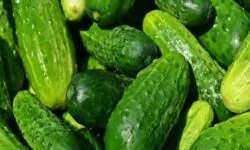
CUCUMBER: Fruit or Vegetable. Benefits and Properties
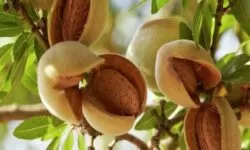
ALMOND: Benefits, Calories and Properties
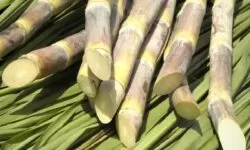
SUGAR CANE: Properties, Benefits and Risks
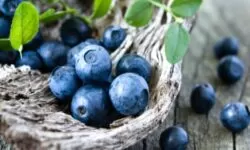
BLUEBERRIES: Benefits, Properties and Contraindications

WATERMELON: Benefits, Properties and Contraindications
Health and Wellness Issues at ALPHAPEDIA

BLUEBERRIES: Benefits, Properties and Contraindications

CUCUMBER: Fruit or Vegetable. Benefits and Properties
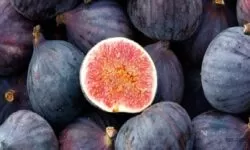
FIG: Benefits, Types and Properties

BANANA: Benefits, Properties and Contraindications

SUGAR CANE: Properties, Benefits and Risks

WATERMELON: Benefits, Properties and Contraindications
Other Topics of Interest in ALPHAPEDIA

FREE MASTER DEGREE IN SCREENWRITING

EROS GOD: Meaning, Mythology, Facts and Attributes

FREE MASTER OF BUSINESS MANAGEMENT

FREE HYPNOSIS COURSE

FREE CERTIFICATE PROGRAM IN JOURNALISM

FREE CERTIFICATE PROGRAM IN ACCOUNTING
Images or Drawings of the Loquat

